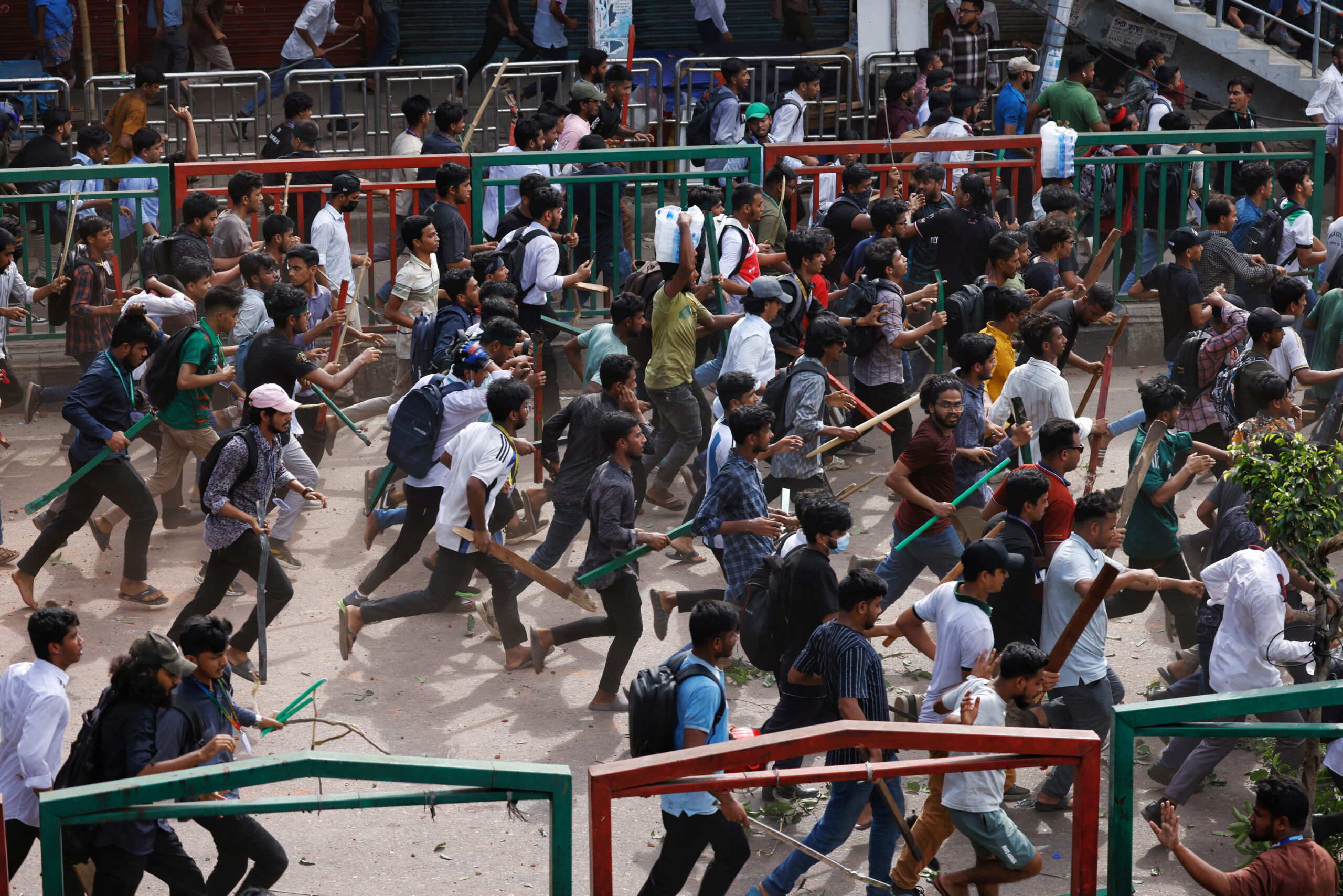
Bangladeshi student slain during violent anti-quota protests
Tuesday in northern Bangladesh saw hundreds of injuries and the death of a university student, according to police, who opened fire with tear gas and rubber bullets on students who were throwing stones during their two-day protest against a government job quota system.
Following Monday’s injuries that resulted in over 100 injuries, tens of thousands of students countrywide participated in protests. In many locations, including the capital Dhaka, there were also altercations between demonstrators and students who supported the ruling party as the students blocked important roads and train lines.
These are the first big demonstrations against the government of Prime Minister Sheikh Hasina since her election to a fourth consecutive term in January.
In the face of significant youth unemployment, the demonstrators are upset over public sector job quotas, which include a 30% quota for the families of liberation fighters from the 1971 War of Independence.
Thousands of riot police were stationed at college campuses around the nation in an attempt to stop any disturbances. According to police, protesters in Rangpur, in northwest Bangladesh, were dispersed using rubber bullets and tear gas.
“To disperse the unruly students who were throwing stones at us, we had to use tear gas and rubber bullets,” Rangpur Metropolitan Police Commissioner Mohammad Moniruzzaman stated.
“We have learned that a student who was protesting passed away in the hospital. How he died was not immediately apparent,” he said.
Jobs
Government positions, which provide regular salary increases and other benefits, have become more appealing due to Bangladesh’s private sector’s stagnant job growth, according to Mohammad Abdur Razzaque, head of Research and Policy Integration for Development.
56% of government positions in Bangladesh are set aside for specific quotas. 10% of seats are reserved for women, 10% for residents of disadvantaged areas, 5% for members of indigenous tribes, and 1% for those with impairments.
When thousands of anti-quota demonstrators fought with members of the ruling Awami League party’s student branch on Monday, violence broke out.
Nationwide marches and rallies are planned by the protestors, and they will not stop until their demands are fulfilled, according to Nahid Islam, the anti-quota protest coordinator.
Television footage displayed a large number of police outside the Dhaka University campus, all armed with wooden clubs and with helmets and protective vests.
When the High Court ordered the government to reinstate the 30% job quota earlier this month, protests broke out.
The decree was put on hold by the Supreme Court last week for a month, but protests persisted and were more intense when Hasina refused to comply with the students’ demands, claiming that court cases were still pending.
Those who opposed the quota were called “razakar” by Hasina, a term used to refer to people who were purportedly in collusion with the Pakistani army during the 1971 war, which incited more demonstrations.
In spite of the fact that industrial output has increased by 10% yearly on average since 2011, employment in the industry decreased between 2017 and 2023, according to Razzaque, who cited government data.
“Additionally, youth unemployment is high, with nearly 32 million young people not in education, employment, or training,” said Razzaque.
All Categories
Recent Posts
Tags
+13162306000
zoneyetu@yahoo.com



